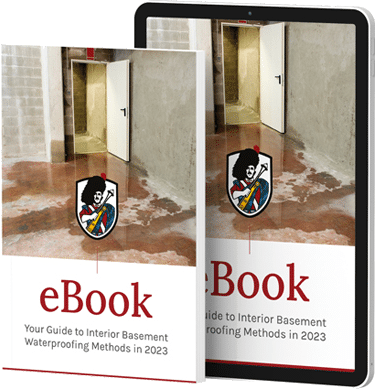You’ve just come back from a week in paradise, enjoying your vacation time to the fullest. You finish unpacking your suitcase, or rather dumping it out in the laundry hamper, and head down to the basement to put your suitcase away.
All of a sudden, at the bottom of the stairs, your memory is flooded with the good times you had wading in the ocean. Your basement has flooded while you were away.
There is never a good time for your basement to flood. You can try to prevent flooding, but if it’s going to happen, it’s going to happen. You can, however, control how you react to a basement flood.
So what should you do if your basement floods?
First things first, you want to stay calm. We know it’s easier said than done, but trust us. When you start panicking your brain gets overwhelmed and you may not be making the best decisions regarding your safety and what to do next.
While still picturing yourself on vacation, trying to remain calm, you are going to want to act quickly. The longer the water sits in your basement, the more damage it can do. Wait too long and water will start to grow mold, which will cause even more problems in your basement.
Water and electricity do not mix. A flooded basement runs a high risk of electrocution, so before you go down into the basement, turn the electricity off. While this will prevent one safety hazard, it will be dark down there so make sure you take a flashlight with you.
Once you’re safely in the basement, you will want to find out where the water is coming from. The water could be coming in from the window, seeping in from the walls or even from the floor. Try to catch the water in a bucket or somehow deflect it to prevent any further damage.
Now that you have fully assessed the situation, the next thing you should do if your basement floods is remove the water. This is where you may need to call in the experts. The best ways to get water out is using a pool pump or a vacuum capable of sucking up water. If you don’t have immediate access to either of these and want to get the water out ASAP, a plain old bucket will work just fine. Make sure when you’re getting rid of the water to actually pour it down a drain. Simply throwing the water out in your yard may actually bring the water back into your basement.
Unfortunately, your cleanup won’t be over once the water is gone. The water, no matter how long it was there, would have caused damage. You will want to go through the damaged area and see what can and can’t be salvaged. Most likely flooring will have to be replaced. If you have carpeting in the area affected by the flood, it should be replaced, as debris could be stuck in between the fibers and could cause mold. Any drywall above the waterline can be saved, but any trim and drywall below the waterline should be replaced to prevent mold growth.
It is recommended by the National Manufacturers Association and the Gas Appliance Manufacturers Association that most electric and mechanical equipment affected by a flood should be replaced. Flooded outlets, switches and fixtures along with wiring and gas fired appliances should all be removed and replaced with new ones. Any electric motors that have been flooded should be replaced. Hopefully you’ll never be in the situation again, but if you are, now you know what to do if your basement floods.
Once all the cleanup is taken care of, make sure to call G J MacRae to have your basement cracks repaired and waterproofed so the only water you’ll be wading in is at the beach.







